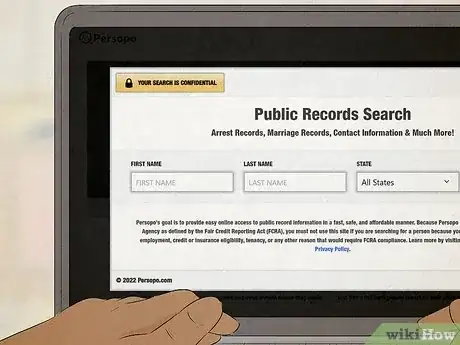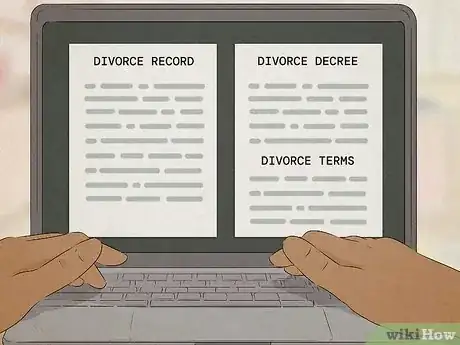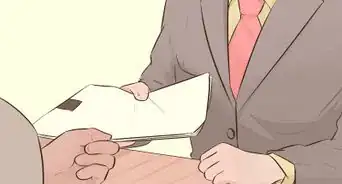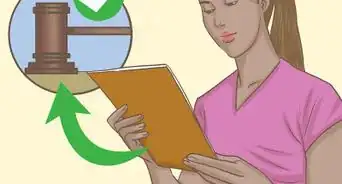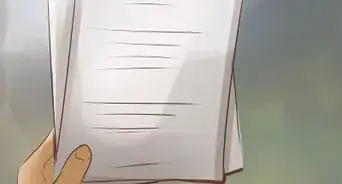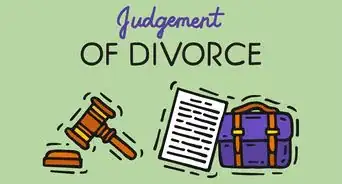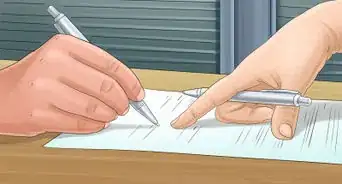This article was co-authored by Scott Levin and by wikiHow staff writer, Eric McClure. Scott Levin is a Divorce Mediator & Family Lawyer, as well as the Founder of San Diego Divorce Mediation. With nearly 20 years of experience, he specializes in peacefully mediating divorces so couples split amicably. He holds a law degree from the University of Chicago School of Law and a Bachelor’s degree in Metropolitan Studies from New York University. Additionally, Scott is a licensed attorney in California, a Certified Divorce Financial Analyst, and a member of The Academy of Professional Family Mediators.
There are 8 references cited in this article, which can be found at the bottom of the page.
This article has been viewed 879,056 times.
If you need to present divorce records to prove that you or someone you know is actually divorced, you may be wondering where to get them. While every state and county has their own process for pulling these records, it’s typically pretty easy to figure out where you need to go. In this article, we’ll show you where you need to go and what you’ll need to know in order to find the documents you need.
Things You Should Know
- Find the vital records website for the state or county where the divorce took place. Call, file online, or show up to the office in person to find your records.
- Unfortunately, there are no free solutions here. You will need to pay the state or county a small fee (usually $15-50) to pull the records.
- Stick with official government websites when you conduct your records search. No third-party site will be cheaper or more accurate.
Steps
Expert Interview
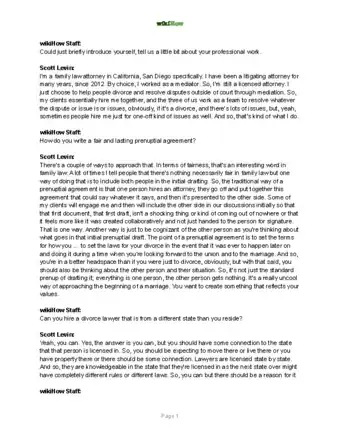
Thanks for reading our article! If you'd like to learn more about divorce processes, check out our in-depth interview with Scott Levin.
References
- ↑ https://www.floridahealth.gov/certificates/certificates/divorce/index.html
- ↑ https://www.health.ny.gov/vital_records/divorce.htm
- ↑ https://doh.wa.gov/licenses-permits-and-certificates/vital-records/ordering-vital-record/marriage-or-divorce-record
- ↑ https://www.mass.gov/how-to/request-information-on-how-to-obtain-a-divorce-record
- ↑ https://doh.wa.gov/licenses-permits-and-certificates/vital-records/ordering-vital-record/marriage-or-divorce-record
- ↑ https://kingcounty.gov/depts/records-licensing/recorders-office/copy-requests.aspx
- ↑ https://www.wicourts.gov/services/attorney/docs/seal_flyer.pdf
- ↑ https://www.courtnewsohio.gov/cases/2022/SCO/1011/210203.asp#.Y3ziInbMIuU
- ↑ https://doh.wa.gov/licenses-permits-and-certificates/vital-records/ordering-vital-record/marriage-or-divorce-record
About This Article
Before you can find divorce records, you'll need to collect some information, like the bride and groom's full names, the date of the marriage, and the county where they filed for divorce. With that information, search the county's court website for divorce records. To access the full divorce decree, you'll need to contact the state or county's Vital Statistics office, fill out a form, and pay of fee of around $20. It could take a few weeks to several months for a response. For more ways to access divorce records through private companies, see our Legal reviewer's tips below.

